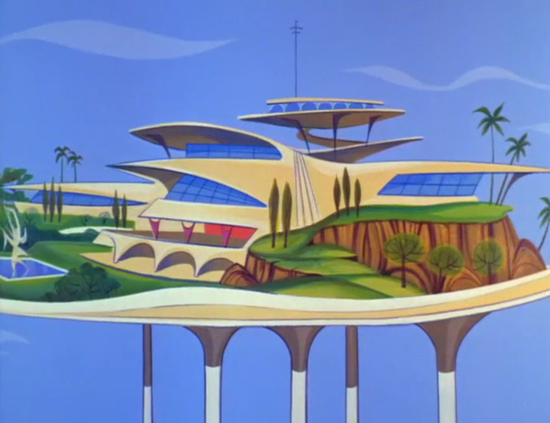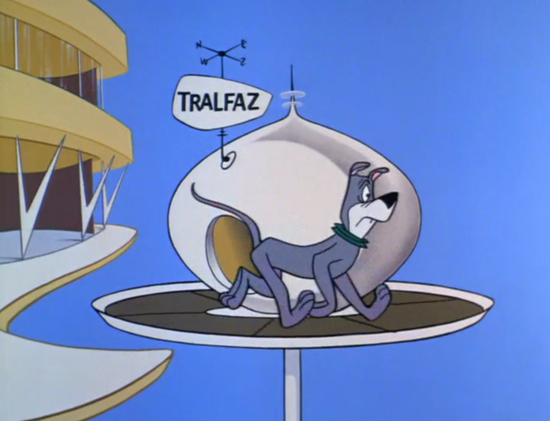The Jetsons and the Future of the Middle Class
Living paycheck to paycheck in the techno-utopian future
![]()
This is the 15th in a 24-part series looking at every episode of “The Jetsons” TV show from the original 1962-63 season.
The world of “The Jetsons” is fundamentally a conservative vision of the future. Whenever I mention this people tend to give me a strange look. But what I mean by “conservative” is not some political “red versus blue” or “Democrat versus Republican” idea, but rather conservative in the advocacy of the status quo — aside from technology, that is. The show projects into the future what was seen by some in 1963 as the ideal American family. They may have flying cars and vacations to the moon, but the family still consists of a husband, wife, two kids and a dog. Mom is a homemaker, Dad has a (relatively) steady job. Daughter is boy-crazy, Son is rambunctious and inquisitive but not a troublemaker. And the dog is… well, it turns out the dog is a millionaire. At least in the 15th episode he is.
The 15th episode of “The Jetsons” originally aired on January 6, 1963 and was titled “Millionaire Astro.” The conservative element in this episode has to do with an issue that made plenty of headlines in 2012 — income inequality. Over the years, more daring forms of American futurism — everything from Edward Bellamy’s 1887 socialist utopian novel Looking Backward to the 1987-94 TV show “Star Trek: The Next Generation” — have envisioned eras with vastly different economic structures (including the obsolescence of money). But within the Jetsons world, billionaires still exist. The billionaire in question here may be quite unlovable, but there’s a familiarity viewers have with the gag — rich people still exist in the future and your attempts to win in a court of law against them are essentially worthless.

The mansion of billionaire J. P. Gottrockets in the January 6, 1963 episode of The Jetsons
George teeters on the edge of middle class and working class (what many Americans often call “lower-middle class”) while the techno-utopian future hasn’t produced tangible quality of life improvements wherein everybody feels like they’re living in the lap of luxury. George works just a few hours each day, but his standard of living is far below others like the local billionaire, J. P. Gottrockets. This episode is Astro’s origin story. We learn that Astro’s original owner was Gottrockets. Astro’s given name was Tralfaz, but after running away Elroy picks him up and we learn that he loves life with the Jetsons much more than his old life with Gottrockets. After a court battle over custody of Astro, Gottrockets has Astro return to his estate. But Astro is bored with his original owner’s wealth. All the steaks he can eat, all the bones he can gnaw on, all the fire hydrants he can… sniff. The narrator explains that Astro was “Doomed to a life of dull, depressing wealth and luxury.” Thus, it’s the age-old lesson that money can’t buy happiness (although those with lots of money seem to be doing just fine).
Technologically, things have advanced. But socially, economically and culturally “The Jetsons” represents a future that is not unlike the world of 1963. They are stuck in time. This of course has a very practical reason: the people of 1962-63 when the first (and only original) season aired needed to watch something with which they could relate. But as the most important piece of futurism of the 20th century, it’s interesting to note that it represents an idealized society that is increasingly anachronistic with each passing year.

Astro (aka Tralfaz) on his fancy automatic dog-walker at J.P. Gottrockets’ house
/https://tf-cmsv2-smithsonianmag-media.s3.amazonaws.com/accounts/headshot/matt-novak-240.jpg)

/https://tf-cmsv2-smithsonianmag-media.s3.amazonaws.com/accounts/headshot/matt-novak-240.jpg)